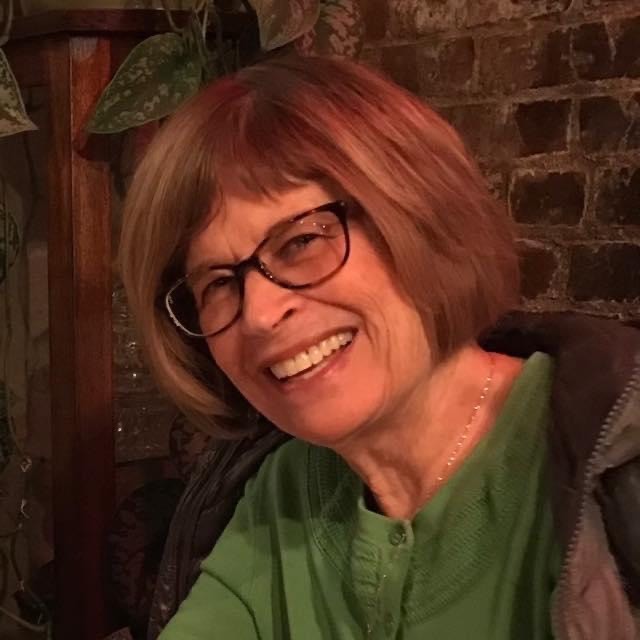Sharon Thorne
B.S. in Speech Communication, 1965
 Meet Sharon!
Meet Sharon!
Q: What led you to choose the University of Utah, and what drew you to study Communication?
A: Very practical reasons led me to the U. I literally lived in the neighborhood and could walk to school. The state of Utah was offering a 75% discount in tuition to high school graduates who were in the top 10% of their class. I qualified which meant that my tuition was reduced to $25/quarter. At the time I felt a few pangs about not being able to go away to college and live in a dorm, etc. But looking back I am grateful for my experience at the U and have no regrets at all. My education and out-of-classroom experiences prepared me wonderfully for my career and life ahead. Not sure exactly what led me to Communication. I was an active debater and speaker in high school … always loved public speaking. The Communication program had a good reputation. I paired it with a secondary education degree. Back in those days, career options for women were limited largely to teaching, nursing, and secretarial, so it made some sense to be sure I could always “teach”.
Q: What was your first job out of college?
A: I worked at the University of Illinois at Chicago Circle as an Assistant Director of Student Activities in the student union. It was my dream job. At the U, I had been very active outside the classroom on committees and lots of other involvement. During those years, the U supported extensive ways for students to be trained and experienced in leadership and to serve as full partners on Student-faculty committees. In my senior year I was selected to be Chair of the Union Board, a prestigious body that managed the Union. President James Fletcher was an active member of the Board along with faculty, students, and alumni. It was a great experience and set me up to want to work on a campus that supported similar experiences for students. I was able to bring my skills honed at the U to the University of Illinois Chicago Circle.
Q: What impact has your education from the College of Humanities had on your life?
A: To be honest, I’m not sure how to separate the College of Humanities from my total involvement at the U. So, my answer to this question may be from a broader perspective. Neal Maxwell, VP of Student Affairs; Virginia Frobes, Dean of Students; Martin Erickson, Union Director were role models for creating ways for students to learn outside the classroom about themselves, leadership, and serving the university community. The values, skills, and practical applications, I acquired under their wisdom have served me my whole career and life. Values such as empathy, service, and helping those who need it. Skills such as knowing how to create environments where people can make good decisions and lead groups to action. And practical applications such as running effective meetings and helping others collaborate. I built a solid career for over 40 years in the field of Organization Development and consulted to governments, corporations, and many other organizations. My work focused on helping organizations improve their effectiveness and functioning by focusing on organizational culture, processes, and people. I worked to encourage organizations to treat their people with respect and kindness, and to contribute at the highest level in their communities. My experiences at the U inspired all aspects of my work over all those years. I am deeply grateful, appreciative, and proud of graduating from the University of Utah.
Q: What advice would you give to current humanities students?
A: Wrap yourself in this special learning environment and aim to challenge yourself to new levels of insight and action that will serve your own aspirations, as well as contribute to the challenging needs of our country and the world. Let your empathy be stretched to new levels and your critical thinking be developed to understand complexities. Reach out to faculty who intrigue you and fellow students that you disagree with. Learn how to communicate across differences of culture, background, and beliefs. Join extracurricular activities that will expose you to the complexities of working on tough issues, because after graduation, that’s likely what you will be faced with. And in the midst of all that enjoy, have fun, and take study breaks up the canyons in some cool shady beautiful spot.
Q: What advice would you give to graduating students as they start to explore a career and life after college?
A: There may be a crush of practical considerations facing you like earning a living, relocating, or perhaps starting a family. In the midst of it all, tune in to your deepest ambitions. What is it that you want to contribute? What makes you proud to imagine being involved with? Who/what do you have empathy for? Your answers will provide guidance. Stay eager to learn. Don’t be afraid of making a mistake; almost any decision can be re-done later. Finally, take care of yourself always – nutrition, exercise, your spiritual life, and nourishing relationships will all serve you your entire life and will provide the energy and drive that will enable you to contribute at your highest level.
Q: What is the best professional advice you’ve ever received?
A: No matter what, lead with integrity, honesty, and empathy.
